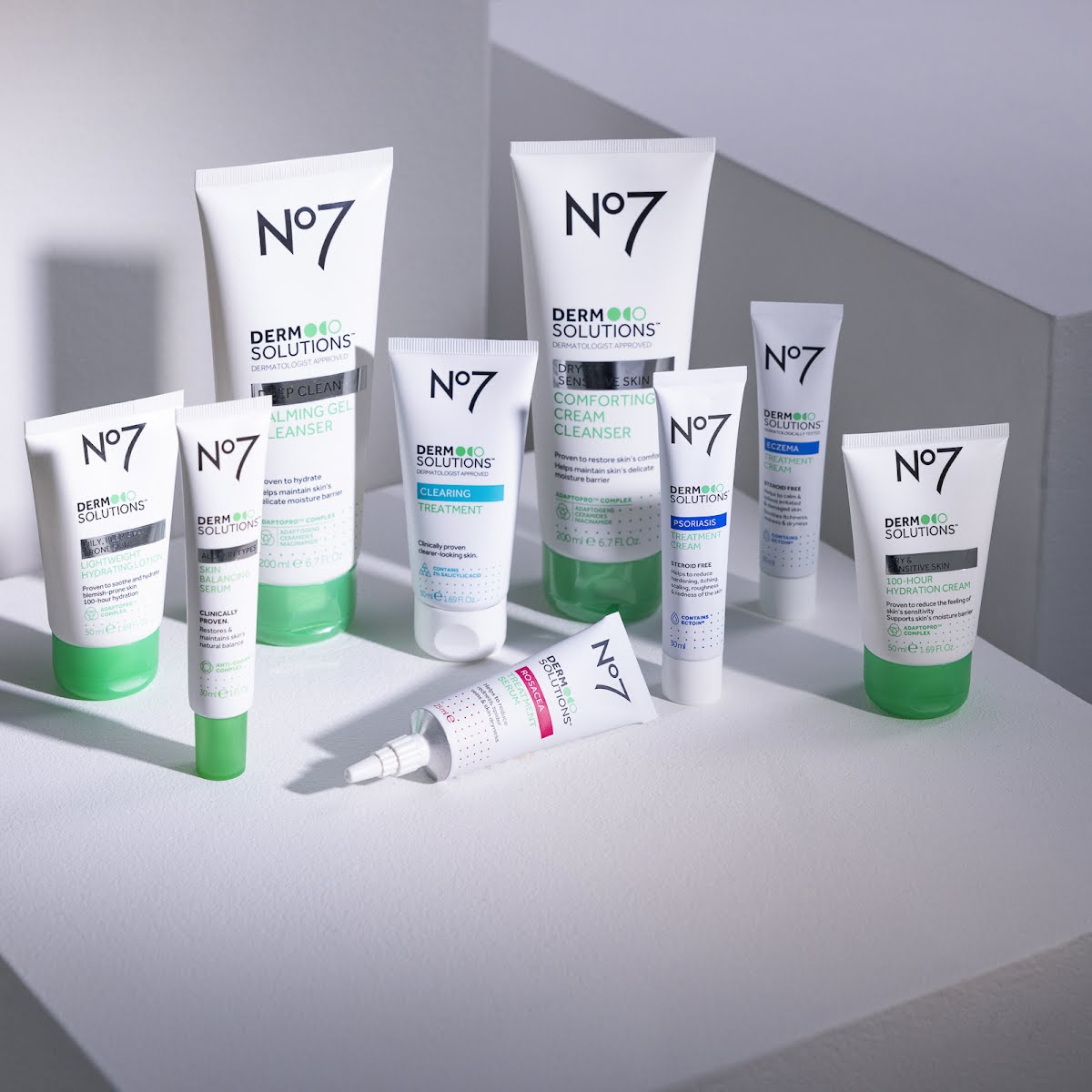Everything you need to know about eczema, from a cosmetic doctor


From common triggers to how best to deal with it, we ask Dr Katherine Mulrooney about the most common type of eczema.
If you struggle with eczema-prone skin you know what a pain it can be – angry red patches that bloom quickly on the skin, usually accompanied by an incessant itch and intense dryness. And often, your run-of-the-mill moisturiser or emollient cream just won’t cut it.
So what can you do when you feel eczema simmering under the surface? We asked Dr Katherine Mulrooney, who herself has experienced eczema since she was a child, how best to deal with it.
“Early intervention is key because eczema will not go away of its own accord,” said Dr Mulrooney, “so don’t be afraid to use the necessary treatment when needed. It’s very much peaks and troughs – the goal is to prolong good periods of skin health and shorten the duration and severity of irritation. Distil down what suits you and what does not. Identify your triggers, avoid them, and then follow these tips for your daily activities and skincare routine.”
What exactly is eczema?
“Eczema is an umbrella term used to describe a group of inflammatory skin conditions that generally present as inflammation, dryness, redness and itchy skin. It can have an intense itch, and often the only way patients can relieve this is by scratching it, which of course causes damage.
“There are about seven different types of eczema. Atopic eczema is most common and generally presents as red, irritated patches in paler skin, and in darker skin, it presents as greyish or purplish patches often affecting the creases of the elbow, behind the knee, the sides of the neck, and the extensive surfaces of the wrist as well.
What causes eczema?
“Eczema is caused by a combination of factors, including genetic, environmental and stress-related. In fact, stress will worsen any inflammatory skin condition, such as eczema.
“If you have a positive family history of eczema, you’re more prone to it. Scientists have discovered a link between eczema and a deficiency in filaggrin, which is a protein responsible for keeping moisture in the skin. So, people with atopic eczema tend to have decreased filaggrin in their skin, which makes their skin barrier weaker and leakier. The skin loses more water and also allows various different environmental allergens into the skin, which in turn can trigger an eczema cascade of inflammation.
“Then common environmental triggers can be chemicals found in some soaps, biological detergents, fabric softeners and items such as latex and nickel. Also, house dust mites and wearing synthetic fabrics close to your skin can trigger eczema.”
How do I tell the difference between dryness and eczema?
“A little bit of dryness may occur from just overwashing or overuse of products, but when it persists, becomes red and is extremely itchy, it could be eczema. The key is the itching. Most patients with eczema will describe an itch, whereas with dryness there’s generally not an itch with it.
“Also with eczema, the itch will trigger a scratch response which can damage the skin, making it become more inflamed and angry and sometimes leading to mild excoriations or scratches on the skin. It’s important to note that you can have dry skin and not atopic eczema. But if you have atopic eczema, you will definitely have dry skin.”
If you’re not sure if you have dry skin or eczema, please consult your GP to confirm a diagnosis.
What are some easy habits to avoid skin irritation with eczema?
“With eczema, environmental triggers are very common, so avoid the ones I mentioned above – if they are known triggers. It’s also important to keep breathable, natural fabrics close to the skin, especially when you’re exercising, such as cotton or silk. Also, when you’re taking a shower, make sure you don’t stay in the shower too long. Take shorter, lukewarm showers rather than long, really hot showers because they’ll only serve to harm the skin.
“When you put on a wash, use non-biological detergents and put it on an extra rinse cycle. Finally, when choosing make-up, certainly go for the formulations aimed at sensitive skin (as some chemicals in certain formulas can be triggering), and if you’re using sunscreen, aim towards the more physical protective filters because the physical ones are a lot more inert.”
Can certain foods impact eczema?
“According to a recent study, a minority of children with severe atopic eczema can be sensitive to some foods, most commonly eggs and cow milk.
“The other thing worth noting is that there’s a very close link between severe atopic eczema and asthma and allergic rhinitis, also known as hay fever. So if you’re an allergic type person and you react to various different environmental allergens you may have an increased chance of having irritation. It’s called the Atopic Triad or the Atopic March.”
What are the best over-the-counter skincare ingredients to target it?
“Firstly, you want to opt for products that are hypoallergenic and contain ceramides and fats to comfort the skin. Also, hydrating and soothing ingredients such as hyaluronic acid, niacinamide, glycerol and various plant extracts like seaweed. You’re looking for distilled-down formulas that contain nice ceramides to soothe and comfort the skin.
“Vitamin E is a lovely, soothing antioxidant, and vitamin C and shea butter are really nice. It’s important that the formula is cream-based, and it doesn’t bubble – anything that bubbles contains a surfactant. Surfactants basically cut through grease, so they will cut through the natural lipids in your skin and therefore weaken your skin barrier further.”
What skincare range would you recommend?
“I personally have atopic eczema, and I’ve been using the No7 Derm Solutions range. The products I love are the No7 Derm Solutions Comforting Cream Cleanser, the No7 Derm Solutions 100-Hour Hydration Cream and the No7 Derm Solutions Eczema Treatment.
“The No7 Derm Solutions Eczema Treatment soothes itchiness, redness and dryness; the No7 Derm Solutions Comfort Cream Cleanser is proven to restore skin’s comfort; and the No7 Derm Solutions 100hr Hydration Cream is formulated to provide long-lasting comfort to sensitive-feeling skin.
“I use the cream cleanser and lotion twice daily and then I use the No7 Derm Solutions Eczema Treatment if I feel a little patch of irritation or eczema starting. I apply the eczema treatment before bed to let it soak in overnight and it really gives me that TLC and comfort that I need. Since using them, my skin feels effectively clean. The cream cleanser has a really nice balance and it’s not too oily.”
When struggling with eczema, it’s important to know when to make the switch from over-the-counter skincare to prescription topicals, says Dr Mulrooney.
“In my clinic, the gauge I use is the traffic light system – whereby green stands for your eczema is managed, and your skin is balanced and in good health. When it starts to turn amber, it’s important to consider mild to moderate steroids or non-steroidal alternatives. However, if the skin is broken, you will have to include a topical antibiotic with the steroid. When you get to red, you will need to see your dermatologist or GP for prescription strength treatment.”
To find out more about the No7 Derm Solutions skincare range and the No7 Derm Solutions Eczema Treatment, visit boots.ie.
Photography by Anthony Woods























